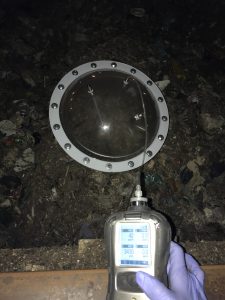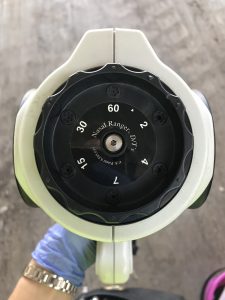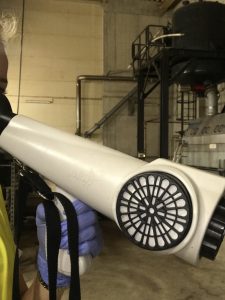Odorimetric method for assessing changes in odour emissions during biostabilisation
Project title: Odorimetric method for assessing changes in odour emissions during biostabilisation
Project leader: mgr inż. Marta Wiśniewska
Lead entity implementing the project at the WUT: WIBHiIŚ
Source of funding: IDUB, YOUNG PW
The waste stabilisation is associated with the emission of gaseous pollutants into the air. Among the pollutants most annoying for the workers operating the composting plant, as well as for the inhabitants of the areas near them, are compounds causing a negative sense of smell – odorants. These compounds can spread over considerable distances, causing, in addition to unpleasant sensations, health effects for people living within reach of the object. Monitoring the emission of harmful compounds is undoubtedly one of the crucial issues in controlling the biostabilisation of waste, which occurs in composting plants.
The environmental impact studies of the installation mentioned above will consist of olfactory measurements (odour concentration) and chemical measurements (odour concentration). The research problem is to verify whether odorimetric tests can be a suitable, adequate technique for monitoring the process of biostabilization of waste, especially regarding the emission of harmful substances.
These objectives will be achieved through odorimetric tests – i.e., determination of the concentration of odour and its characteristics (including FIDOL) and selected odorants during the following stages of biostabilization of waste deposited in compost trusses. Identifying the basic technological parameters of the composting process will accompany these studies. The implementation aspect is the selection of the most effective technological variant, taking into account the minimisation of odour nuisance affecting the well-being of the surrounding inhabitants and the odour characteristics of biowaste in terms of its use in the fermentation process.



